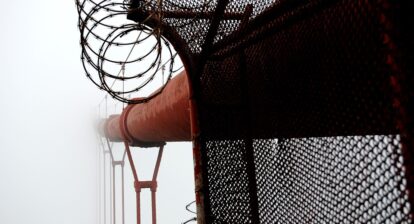On Friday, the city of San Diego expressed its support for a lawsuit against the federal government regarding the termination of Temporary Protected Status for refugees from various countries. This filing is part of the city’s ongoing response to the Trump administration’s extensive deportation efforts.
San Diego is one of 12 local governments featured in an amicus brief supportive of the lawsuit submitted in the Northern District of California. The brief contends that the cessation of TPS for Honduras, Nepal, and Nicaragua—set to conclude by September—would “irreparably harm” the residents and communities of these jurisdictions.
TPS grants temporary work authorization and protection from deportation for individuals fleeing nations experiencing political instability, economic crises, or natural disasters. It is awarded in 18-month increments and can be renewed; however, the Trump administration has ended TPS for numerous countries since taking office in January.
“The threats posed by the federal administration against individuals with TPS status truly fragment families and contribute to significant unrest within our communities,” stated San Diego City Attorney Heather Ferbert.
Since President Donald Trump assumed office in January, Ferbert requested the San Diego City Council to expedite the process for her office to participate in lawsuits against the federal government. As of now, the city has joined three lawsuits as a party and contributed to 11 amicus briefs.
Following a recent U.S. Supreme Court ruling that effectively ended nationwide injunctions, Ferbert anticipates joining additional lawsuits.
“One of my objectives is to ensure we are vigorously defending the city’s rights to prevent any situation where a court order could benefit us, but we miss out because we weren’t involved in the proceedings,” she explained.
The city’s amicus brief was filed shortly after Mayor Todd Gloria quietly signed an executive order on immigration enforcement.
The executive order provides guidelines for the police department about its role in federal immigration activities. NBC 7’s Joey Safchik reports.
The order reaffirms that San Diego police cannot engage in enforcement operations under state law. It also stipulates that a liaison be designated to inform the mayor’s office when police respond to immigration activities for crowd management or public safety needs.
Moreover, it instructs all city departments to review and revise internal policies concerning state and federal laws, indicates support for enhancing identification requirements and limitations on federal agents, and mandates that the city disseminate “Know Your Rights” materials online and at venues like libraries and community centers.
“While cities cannot legally obstruct or halt federal operations, we can ensure that everyone understands their rights,” Gloria stated in a video announcing the order.
“It’s about time, you know? Better late than never,” commented immigration attorney Maria Chavez. “We’re six months in, but we still have another three-and-a-half years to go. The city of San Diego finally stepping up is welcome, and we urge them to do even more to protect vulnerable San Diegans.”
“In my experience, the city has largely remained muted, particularly the mayor’s office,” Chavez added.
Although Gloria’s office declined an interview request, they responded to questions via email. Regarding the timing of the executive order, his office explained, “The Mayor issued this executive order following a series of federal immigration enforcement actions that began in San Diego in late May.”
“Since these raids commenced, the Mayor has engaged in continuous dialogue with community groups concerned about these operations. The executive order was inspired, in part, by this community feedback,” the office added.
According to federal search warrants obtained by NBC 7, the investigation focuses on undocumented workers and fraudulent green cards. NBC 7’s Dave Summers investigates the allegations against the owner of Buona Forchetta and some of the employees.
“Our community is frightened. San Diegans are fearful. Even naturalized U.S. citizens are scared,” Chavez remarked. “The administration claimed to target only criminals, but that’s not the reality. Every one of my clients targeted has no criminal history either in the U.S. or abroad.”
Chavez was among many who expressed concerns that increased vocal opposition to the administration’s immigration policies may render San Diego a target for repercussions—potentially including withheld federal funding for a city already facing a significant budget deficit.
“This administration has demonstrated a tendency to leverage federal funds as a display of power,” Chavez noted.
“It’s always a concern, but I decided early on that some battles are necessary to fight,” Ferbert concluded.




